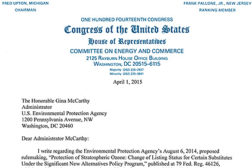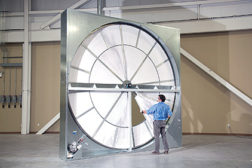Standards and Legislation
US Representative Voices Concerns About Proposed Restrictions
Read More
President Approves First Energy-efficiency Legislation Since 2007
Latest Version of Shaheen-Portman Bill Includes Water Heater Fix, Establishes Tenant Star Program
Read More
India Proposes HFC Refrigerant Reduction
Montreal Protocol Amendment Would Phase Down HFCs in India
May 4, 2015
AHRI, ACCA Survey Contractors
Survey Aims to Determine Cost to Comply with 92% AFUE National Standard
April 27, 2015
April 23, 2015: US House and Senate Pass Energy Efficiency Bill
President Expected to Sign It into Law
April 23, 2015
HVAC Industry Supports Bill to Repeal Death Tax
Small Businesses, Organizations Speak Out in Favor of Legislation
Read More
Standards, Codes Influence Ventilation
Manufacturers Focus on Product Efficiency, Energy Recovery Options
Read More
ABC Applauds Arkansas Law
Law Prohibits Government Entities from Requiring Contractors to Enter into PLAs
April 20, 2015
Copyright ©2024. All Rights Reserved BNP Media.
Design, CMS, Hosting & Web Development :: ePublishing







